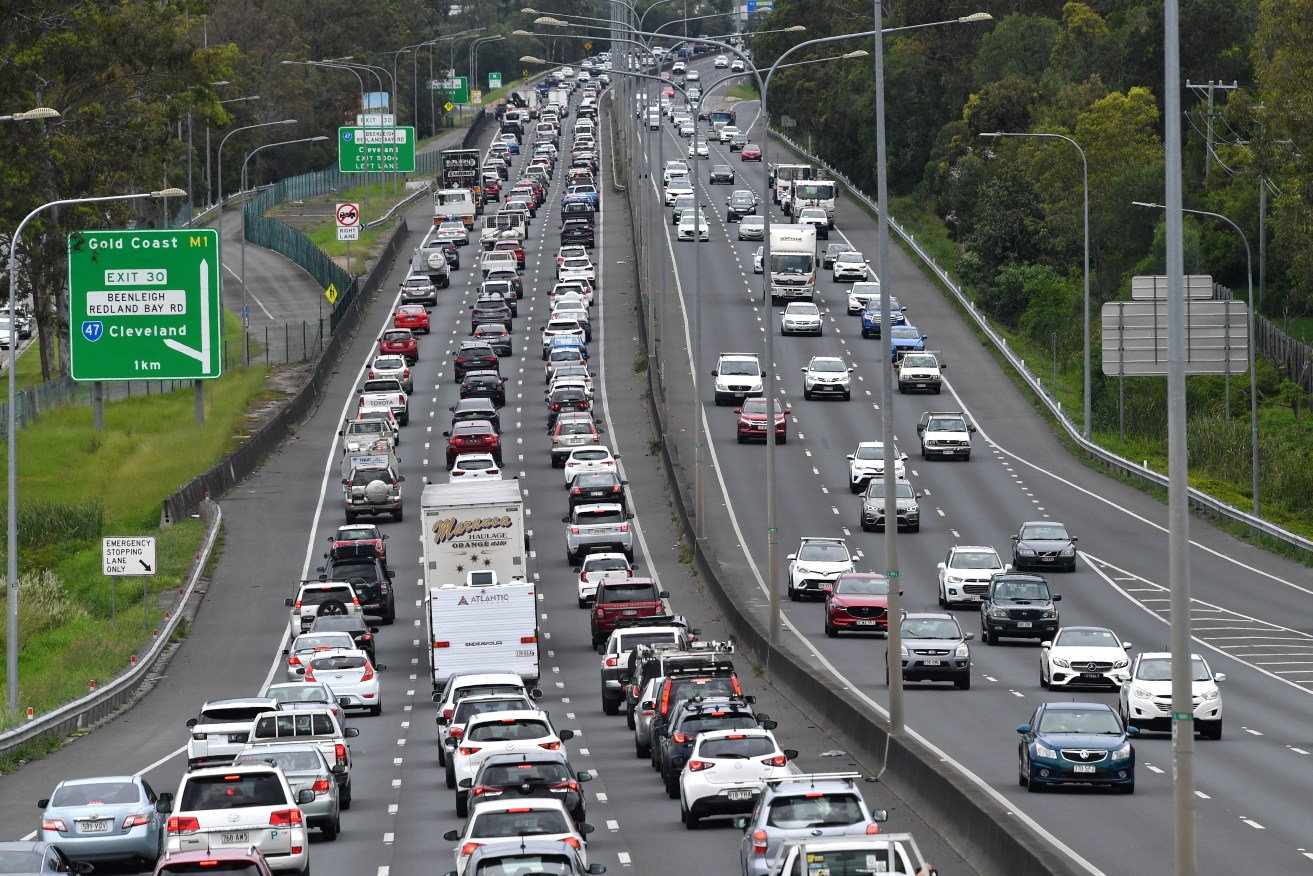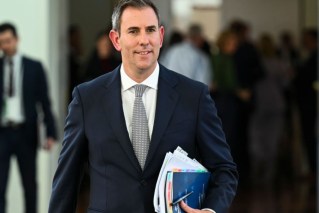Car pollution kills 11,000 Aussies, hospitalises more

The report found the damage to people's health from car pollution is far deadlier than we thought. Photo: AAP
Pollution from motor vehicles could be killing thousands more people than road accidents, with new research finding more than 11,000 Australians die prematurely every year from transport emissions.
A study from The University of Melbourne also found vehicle pollution could be putting more than 19,000 people in hospital for heart and lung issues, and causing asthma cases to spike by 66,000 each year.
Climate and transport experts called the findings “shocking but not surprising” and called for urgent policy changes to encourage more public, active and zero-emission modes of transport.
Research from the university’s Melbourne Climate Futures group used a peer-reviewed formula developed in New Zealand to estimate the impacts of motor vehicle pollution and found its toll was “magnitudes greater” than past estimates.
The study found emissions from vehicles caused 11,105 premature adult deaths every year, and hospitalised 12,210 people with cardiovascular issues and 6840 people with respiratory problems.
By comparison, 1187 people were killed in road accidents in 2022.
Pollution from cars included nitrogen dioxide and tiny black carbon particles that could be inhaled and enter the bloodstream, and the study identified children and unborn children as particularly vulnerable to harm.
Co-author Dr Kelvin Say said the study proved governments needed to pay more attention to the impact vehicle pollution had on Australians’ health.
“Governments spend an enormous amount of money raising awareness about the accident road toll but don’t even collect an official estimate of the pollution road toll and this needs to change,” Dr Say said.
“With the federal government aiming for 3.8 million electric vehicles in 2030, with 90 per cent of new car registrations being EVs, there could be significant and positive implications for health costs in Australia.”
The study recommended the federal government introduce new vehicle and fuel standards to reduce emissions, as well as testing vehicles’ exhaust quality, investigating pollution barriers, and investing in more active and public transport options.
The recommendations were endorsed by groups including Asthma Australia, the Climate and Health Alliance, and the Australian Chronic Disease Prevention Alliance.
Doctors for the Environment spokeswoman Dr Vicki Kotsirilos said raising awareness of vehicle pollution was vital as emissions could cause serious health problems.
“I routinely assess patients on how much air pollution they are exposed to when they present with heart or lung problems such as asthma or recurrent respiratory infections,” Dr Kotsirilos said.
“Children are particularly at higher risk of being harmed by traffic pollution from idling cars – at schools, shopping centres, and childcare centres – and how close they live to a busy road.”
Climate Council advocacy head Dr Jennifer Rayner said more research into the health toll from vehicle emissions was needed urgently as it was “shocking but not surprising to find this figure could be even higher”.
She said governments needed to encourage more Australians to walk, ride a bike or catch public transport, and to accelerate the supply of electric vehicles.
“Implementing strong fuel efficiency standards will see Australians enjoy healthier air and more choice of cleaner cars that are also cheaper to run,” Dr Rayner said.
– AAP








